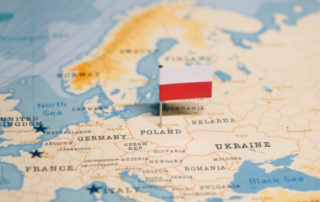
The Tata Group of companies is an iconic Indian conglomerate which more than 100 subsidiaries. It has a rich legacy spanning over multiple centuries led by visionary leaders from different generations. The Tata Group has diversified its business interests across various sectors, including steel, car manufacturing, information technology, hospitality and tourism, aviation, and many more.
In India, the influence of Tata can be felt in almost all major business sectors. Historically, the company has witnessed major world events including Indian independence from British rule. The company was even a major cotton supplier during the American Civil War. The Tata Group is a leading force in driving social progress in India through investing in education, health care, and environmental sustainability. Importantly, Tata has shown an unwavering commitment to addressing the social issues of India. Not only this, but the company has played an instrumental role in supporting the Indian economy, even during tough economic periods. This article will outline the Tata Group’s commitment to social and economic growth in India.
The Tata Group was founded in 1868 and has over 100 subsidiaries expanded in different sectors including automobiles (Tata Motors, Jaguar, Land Rover), aviation (Vistara Airline and Air India), hospitality and tourism (Taj Hotels), textiles (fashion brand Westside), jewelry (Tata's Tanishq), tea and beverages (Tata Tea), financial services (Tata Capital, Tata Mutual Fund), aerospace and defense (Tata advanced systems), steel (Tata steel), information technology (TCS, Tata ELXSI), and many more. In fact, the company has shareholdings in all major business sectors in India and is one of the most successful business enterprises in the world.
The Tata Group’s overall philosophy is based on protecting the interests of not only its owners, but also its employees, consumers of their products, and local communities where the Tata Group operates. Accordingly, Tata has undertaken measures to facilitate significant social growth and development.
Some of the major Tata Group contributions include:
1. Philanthropic Initiatives: Tata Group actively engages in philanthropic endeavors through a group called Tata Trusts. These trusts focus on areas such as healthcare, rural development, livelihood generation, education, arts, and culture. The trusts implement programs in collaboration with different stakeholders for sustainable growth.
2. Investment in Skill Development and Education: The Tata Group has acknowledged the transformative power of education and expanding a country’s skilled workforce. Tata has also recognized the power of education in empowering individuals to drive positive social change. To support this type of educational growth in India, the company established institutions including the Tata Institute of Social Sciences, the Tata Medical Center, and Tata Strive. The institutions provide quality education, including vocational training, to marginalized communities in India.
3. Health and Nutrition: Access to quality healthcare is a major concern in India. Recognizing the gravity of the healthcare sector challenges, the Tata Group opened and operates hospitals and medical research centers throughout India. The centers are focused on eradicating diseases, promoting maternal care, and ensuring easy access to basic health care services. The company's commitment to affordable healthcare is evident in the support provided by Tata Medical and Diagnostics (TataMD), which aims to make health and wellness care more accessible.
4. Sustainable Development: A major chunk of the Indian population resides in rural areas, which has its own environmental challenges. To support sustainable development initiatives, the Tata Group has provided support to The Energy Resource Institute (TERI), an organization that facilitates environmental projects in the region. In addition, Tata Chemicals promotes sustainable development agriculture programs. The Tata Group is also supporting initiatives to further develop rural electrification and sustainable farming practices.
5. Employment Opportunities: The Tata Group is one of the largest private-sector employers in India and has created job opportunities across multiple key sectors. Tata is also recognized as a leader in ensuring employee welfare. Tata’s HR policies are extremely progressive in the region and set an example for other firms to follow.
Looking closely at how the Tata Group operates in India illuminates some important factors that companies should consider when doing business in the area. Social and economic development are extremely important locally and should be prioritized by companies seeking to operate in the area. The Tata Group is one of the largest companies based out of India and operating internationally. The Tata Group may serve as a model for future corporate development in the area.
US companies operating in India should consider how to support development at the local level as well as nationally. Using on the ground resources and due diligence investigations to verify which partners to select in order to prevent corruption and build a solid business foundation is important.



